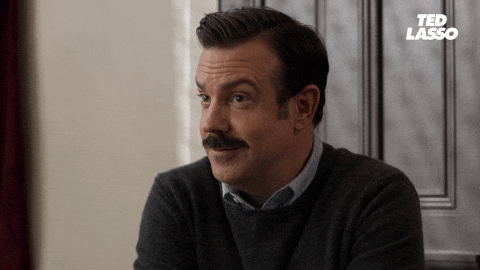OverFlow: Turns Out I Don't Listen to Myself
I’ve been trying to teach myself a lesson for years and I just couldn’t get it through my head.
OverFlow is what happens when I overthink, overflow, and over-everything. When my feelings have nowhere to go, I write about them.
I’m keeping a journal again. By this, I mean writing down more than to-do lists and work notes. Think of it as a return to the innocence of Livejournal without actually going back to Livejournal.
Talking to yourself is usually portrayed in media as a sign of mental troubles—I mean no disrespect, simply stating an observation—but I find that writing for myself and specifically to myself has helped me manage my feelings considerably.
The key is communication. Do you listen to yourself? Apparently, I don’t.
Case in point: I’ve been trying to teach myself a lesson for years, and I just couldn’t get it through my head.
“Romantic Nostalgia Is Killing Me.”
The other day, I replied to a message a friend sent over Telegram RE: setting up a video call, and the conversation turned to anxiety in the time of COVID-19. (Or as she puts it so vividly, the feeling of being “trapped in a burning house.”)
Here’s part of what I typed out:
“It’s been difficult to take the next step: Recognizing and bringing to light habits and hang-ups I need to change to be better . . . My impulse is to hold on to the past because it’s all I’ve ever known and all I’ve ever loved. But this romantic nostalgia is killing me, literally . . .
It’s tremendously exhausting to keep reminding myself that change is good and inevitable and it doesn’t mean that I was wrong or not enough before this—just in a state of constant growth and movement.
Change doesn’t mean forgetting the past. Change is honoring it.”
As I read it back to myself, my jaw figuratively dropped to the floor. Why couldn’t I have sent THIS out to your inboxes instead of that weird, rambling mess of a post that was supposed to be about my birthday?
“Loneliness Is a Hard Habit to Break.”
Later on, I came across one of the poems I wrote for #Decolonize30for30 last April during a Google Drive folder cleanse.
“What could it hurt to be burdened by nothing but emptiness and the Great Unknown?” I asked my imaginary descendants, but also myself.
The tendency to live in the past is strong in me. The way I find it difficult to reach out and talk to friends in the here and now—sure, that’s anxiety. But it’s also fear and avoidance.
It’s obvious now that I talk a big game but don’t actually step up to the plate. I don’t want to be a “do as I say, not as I do” person, but here we are.
"Don’t Dishonor Footsteps Left Down a Path by Going Back."
I also found a collection of song lyrics I wrote for BONSAI, an album I released on my birthday in 2013. In particular, there were notes about the spoken word piece, “Jadzia”:
The line that made it in the final vocal recording is actually “I don't want to dishonor the footsteps we've left down this path by going back,” but the note’s tone was more instructive. In this track, I was meant to be talking to myself in the context of leaving behind who I was in the process of becoming who I’m about to be. It was a ruminative moment—when I turned 30, I felt old and young at the same time.
In “Jadzia,” I also touch on the theme of honoring the past by being present. This was seven years ago. It’s 2020, and I still haven’t fully internalized the concept.
What Now?
The lesson here is that the only way out is through—and that, in the first place, it is imperative to find a way out! Funny how I moved countries, but I’m still stuck behind the same invisible wall between me and everybody else.
Breaking through starts now. Hold me accountable—or actually, don’t. I’ll do it myself, as I should have been doing all this time.
Wait for me on the other side of the wall. I’ll get there eventually.
Photo by Pablo Guerrero on Unsplash
If you’ve enjoyed reading this or something else I’ve written, please consider buying me a coffee. ☕ Thank you!





